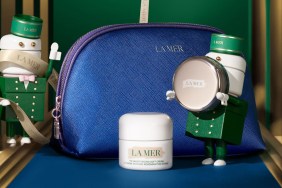One of the most common skin care woes this time of year is dry skin. But your skin may not be dry, just dehydrated. Most people don’t realize that dry skin and dehydrated skin are two very different things. In fact, they not only reflect completely different conditions, they have different causes and treatment protocols.
What’s the difference between dry skin and dehydrated skin?
In the most basic terms, dry skin is characterized by a lack of sebum, whereas dehydrated skin results from a lack of water in the top layer of the skin. According to cosmetic dermatologist Dr. Michele Green, having dry skin isn’t always serious. Usually it’s caused by environmental factors like cold or hot weather or when there’s not enough moisture in the air. It can also be caused by topical irritants including chlorine, hot showers or baths or harsh beauty products. A variety of internal factors can also be to blame, like eczema and psoriasis, hormonal conditions and some oral medications Dr. Jennifer M. Segal points out. Some signs to look out for are cracks, flaking or peeling and redness.
While dehydrated skin can appear dry, it’s not the same as having dry skin. “For someone that has dehydrated skin, signs to be aware of include itchiness, dullness and increased appearance of fine lines and wrinkles,” says Green. “In severe cases, you may experience dizziness, dry mouth, faintness, dark urination and overall fatigue.”
How do you treat dry skin?
There are ways you can improve dry skin. Opt for moisturizers featuring hydrating ingredients, like hyaluronic acid, and avoid harsh soaps. “Your cleanser should be a gentle, fragrance-free product that removes bacteria and other microbes without stripping the skin. No scrubs, exfoliants or toners — these can only worsen dry skin,” says Segal. “Dove Beauty Bar, Cetaphil or Avène’s gentle cleanser are my favorites. After the shower or bath, skin should be patted dry and a gentle, fragrance-free moisturizer, like CeraVe, should be applied all over, trapping the moisture in the skin before it has had a chance to evaporate. Ideally, this should be done twice a day, morning and night. All fragrances and perfumes, which can be irritating and further drying to the skin, should be avoided.”
How do you treat dehydrated skin?
Dehydrated skin can be treated with lifestyle changes. While drinking more water won’t help dry skin, it will help dehydrated skin. As will eating more plant-based, water-rich foods, like fruits and vegetables. Getting enough rest can also help. “Severe dehydration may be treated through IV fluids at a physician’s office or hospital,” says Green. “If you notice that your skin isn’t improving after these lifestyle changes, be sure to visit a dermatologist to prevent further complications.”








